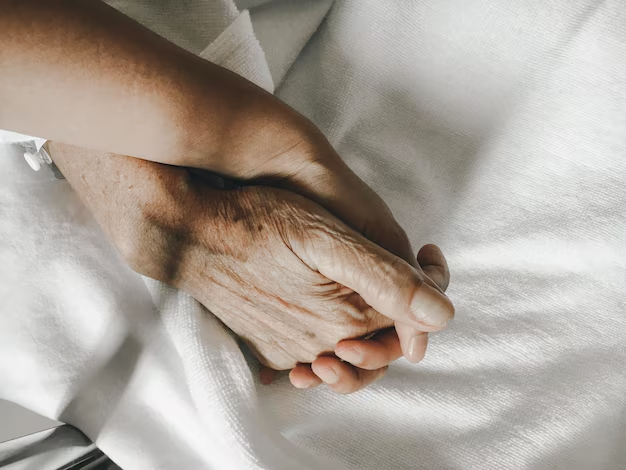Your Guide to Does Parkinson's Disease Cause Death
What You Get:
Free Guide
Free, helpful information about Parkinsons FAQ and related Does Parkinson's Disease Cause Death topics.
Helpful Information
Get clear and easy-to-understand details about Does Parkinson's Disease Cause Death topics and resources.
Personalized Offers
Answer a few optional questions to receive offers or information related to Parkinsons FAQ. The survey is optional and not required to access your free guide.
Can Parkinson's Disease Lead to Death?
Parkinson’s Disease (PD) is a complex and progressive neurological disorder that affects movement and motor control. But a key question persists among those newly diagnosed and their loved ones: Can Parkinson’s Disease lead to death? While Parkinson’s itself is not usually the direct cause of death, complications arising from the disorder can indeed lead to life-threatening situations.
Understanding Parkinson's Disease
Parkinson's Disease primarily affects the central nervous system and is characterized by symptoms such as tremors, rigidity, bradykinesia (slowness of movement), and postural instability. As the disease advances, these symptoms can lead to complications that indirectly pose serious health risks. For instance, difficulties with balance can lead to falls, which might result in fractures or head injuries. Additionally, Parkinson's can lead to more direct complications such as aspiration pneumonia—a condition caused when food or liquid enters the lungs due to swallowing difficulties.
Managing Parkinson's for Improved Lifespan
Treatment for Parkinson's often focuses on controlling symptoms and enhancing quality of life, which may indirectly contribute to longevity. Medications like Levodopa are widely used to manage symptoms and must be carefully monitored and adjusted over time. Furthermore, therapies involving exercise, physical therapy, and sometimes surgical interventions like Deep Brain Stimulation (DBS) have shown effectiveness in symptom management. These treatments are crucial in minimizing the risk of complications that could potentially lead to death.
Financial Implications and Support Systems
Living with Parkinson’s Disease involves not just emotional and physical challenges, but financial ones too. The cost of medications, therapies, and caregivers can quickly add up, leading patients and families to seek financial assistance.
Government Aid Programs can play an instrumental role—Social Security Disability Insurance (SSDI) and Medicare offer support to those who qualify. Moreover, some states may provide additional assistance through Medicaid for home care services or physical therapy benefits.
For those facing financial strain, exploring options such as debt relief programs or credit card solutions can provide necessary financial breathing room. Organizations like the American Parkinson Disease Association offer resources and sometimes financial aid to those in need.
Educational opportunities also abound, not just for patients but for caregivers and family members who wish to become more knowledgeable about the disease and care methods. Educational grants or scholarships might be available for courses or certifications in caregiving or healthcare-related fields, providing a pathway for developing much-needed skills.
While Parkinson’s Disease does carry significant health risks, with proper management and access to financial resources, patients can maintain an optimal quality of life. Here’s a helpful list of resources and financial aid programs for those affected by Parkinson’s:
- 🌟 Social Security Disability Insurance (SSDI): Provides financial support for qualified individuals unable to work due to PD.
- 💊 Medicare/Medicaid: Offers medical assistance including therapy and drug coverage.
- 🏡 State Health Services: Explore local assistance programs for home care and therapy benefits.
- 💼 Non-Profit Organizations: Access Parkinson-specific support via groups like the American Parkinson Disease Association.
- 💳 Debt Relief & Credit Solutions: Consider consulting financial advisors for managing medical debt or exploring low-interest credit options.
- 📚 Educational Grants: Seek scholarships for courses in healthcare and caregiving to enhance disease management skills.
By leveraging these resources, individuals with Parkinson's and their families can better navigate the complexities of the disease while focusing on a hopeful, informed journey ahead.
What You Get:
Free Parkinsons FAQ Guide
Free, helpful information about Does Parkinson's Disease Cause Death and related resources.

Helpful Information
Get clear, easy-to-understand details about Does Parkinson's Disease Cause Death topics.

Optional Personalized Offers
Answer a few optional questions to see offers or information related to Parkinsons FAQ. Participation is not required to get your free guide.


Discover More
- Are There Environmental Causes Of Parkinsons
- Can Alcohol Cause Parkinson's
- Can Concussions Cause Parkinson's
- Can Concussions Cause Parkinson's Disease
- Can Dogs Get Parkinson's Disease
- Can Dogs Get Parkinsons
- Can Dogs Have Parkinson's
- Can Dogs Have Parkinson's Disease
- Can Females Get Parkinson Disease
- Can Head Trauma Cause Parkinson's
